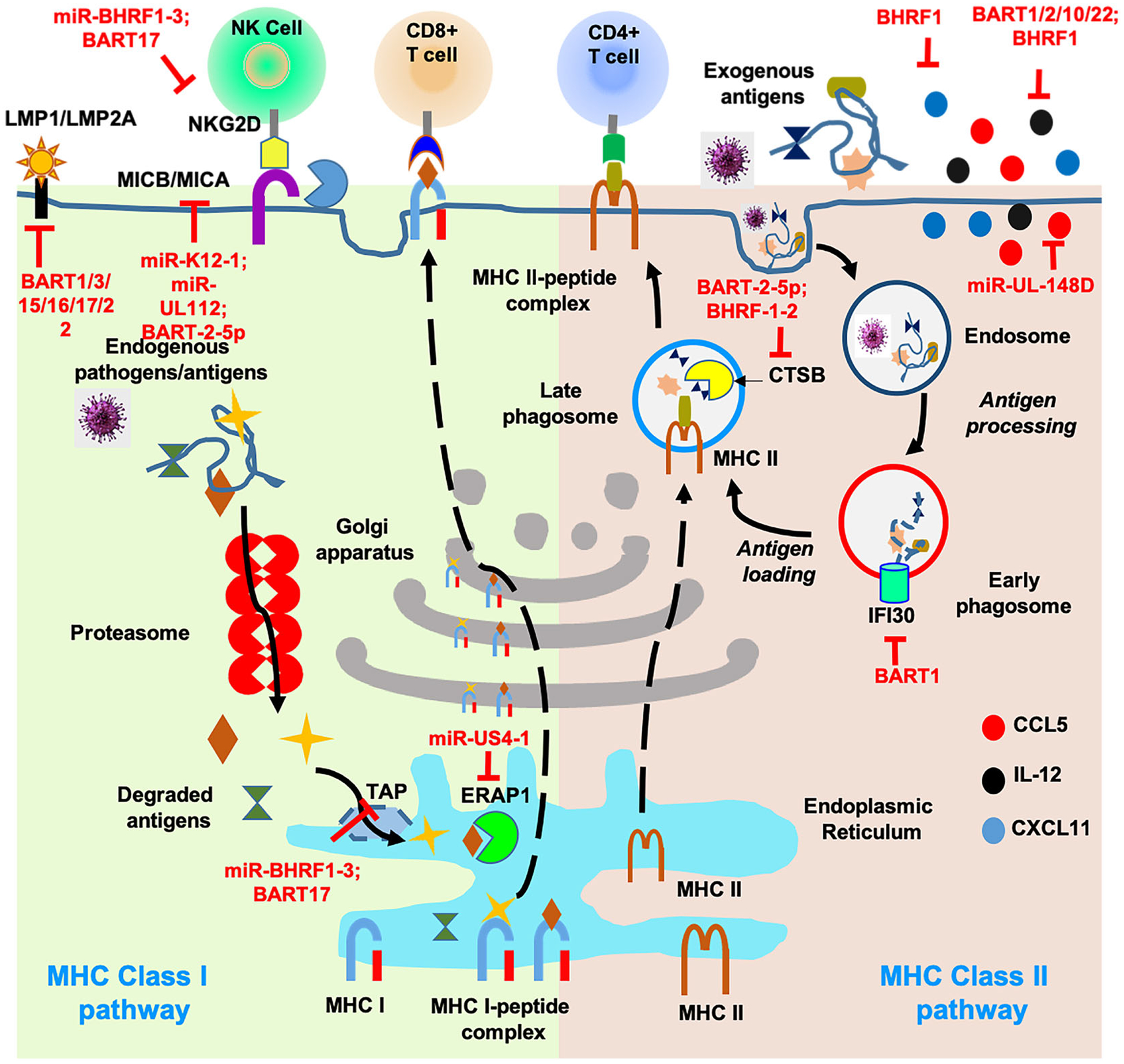FIGURE 3.

Viral miR-mediated evasion of adaptive immune responses. Antigens are presented by two major pathways, MHC class I and MHC class II. In MHC class I pathway, endogenous viral antigens are degraded via proteasome machinery, translocated to endoplasmic reticulum through TAP proteins and are processed by proteases like ERAP. Processed peptides are assembled with MHC-I complex to be presented predominantly to CD8+ T cells. MHC class II pathway involves exogenous antigen internalization by several pathways, including phagocytosis, macropinocytosis, and endocytosis. Antigens are trafficked to a mature or late endosomal compartment where they are processed and loaded onto MHC-II molecules that present antigens to CD4+ T cells. Numerous viral miR are known to impair both MHC class I and II pathways by targeting one or more components of the same pathways. In addition, some critical genes (eg, MICB) are targeted by multiple herpesvirus miR indicating selective evolution of miR sequences that can interfere with antigen processing and presentation pathway. Inhibition by viral miR is shown as blocked line highlighted in red. By virtue of their direct interaction with host and viral transcripts, v-miRs can impair components of MHC class I (antigenic peptide transporter TAP, and protease ERAP1) and class II (cathepsin B); inhibit release of proinflammatory and antiviral cytokines; protect infected cell from CD4+/CD8+ T cell response and NK cell-mediated cytolysis; reduce highly antigenic viral antigens (LMP1/ LMP2A)
